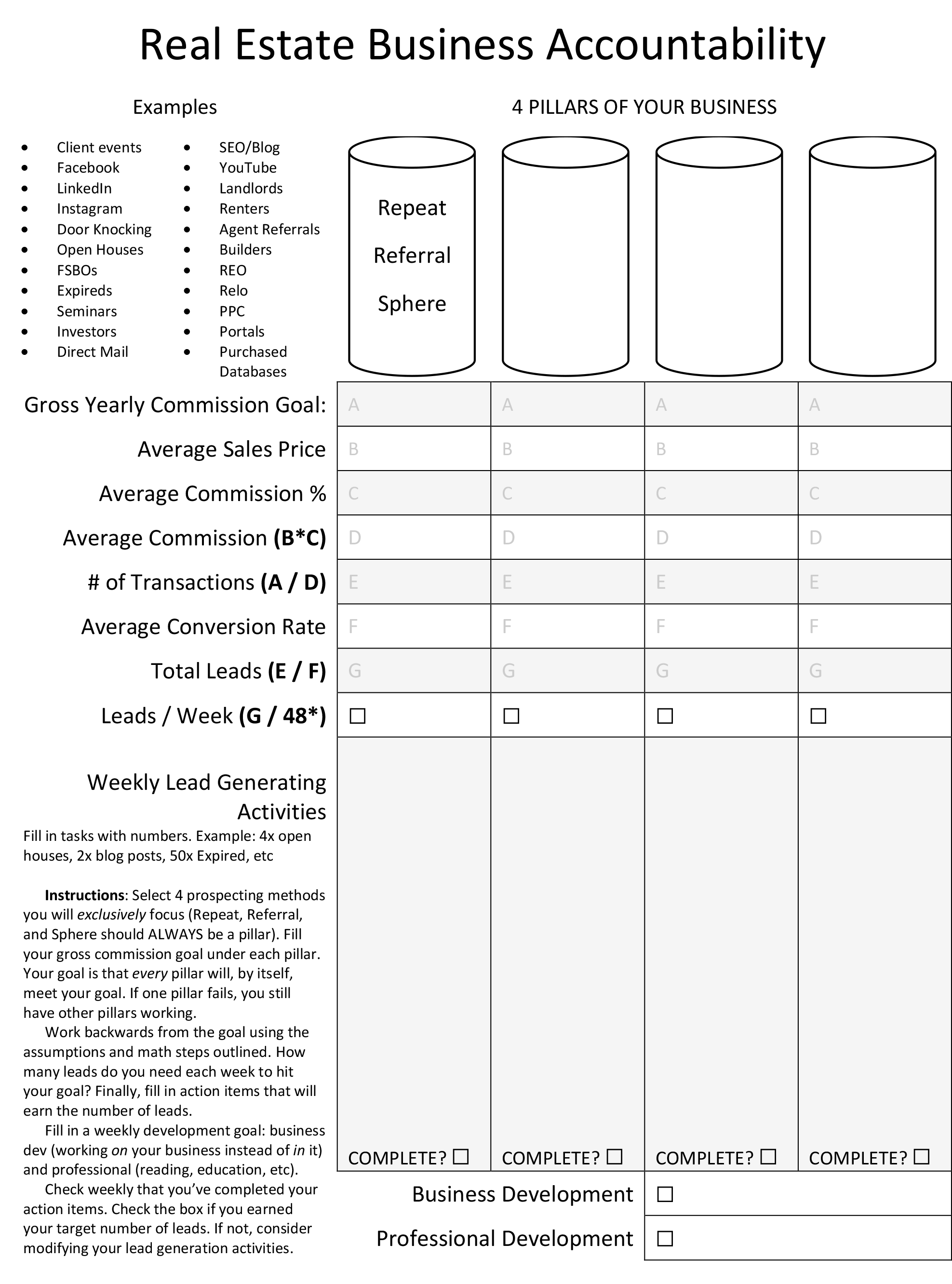[DOWNLOAD] Free Real Estate Accountability Checklist
History is full of wars. Some wars are virtuous, like pushing Saddam Hussein out of Kuwait. Other wars are for land, or civil wars between competing throne chasers, or other causes we detest in the 21st century. Or worse, many soldiers fought for outright evil causes like Nazi Germany.
But what all wars have in common is the motivation of the individual soldier.
Why do soldiers fight?
The answer is simple. They fight for each other.
The Army identifies small unit cohesion as the reason soldiers fight, and fight hard. When the battle starts, it doesn’t matter why they are there, or what abstract cause they are fighting for or against. Instead, they feel a deep, driving responsibility to fight for one another as hard as they can and not let each other down.
Soldiers fight because of the other members of their small unit. Most soldiers value honor and reputation more than their lives because life among comrades whom a soldier has failed seems lonely and worthless.
Confronting the Tiger: Small Unit Cohesion in Battle
Thankfully, real estate agents generally aren’t in life and death struggles against a foreign enemy. But peer accountability is still a deeply felt value for the highly social human species. Through accountability groups, we can leverage this to our advantage in business.
To achieve your full potential as a real estate agent, you need to be held accountable by your peers.
I’ve created a simple, goal-oriented tracking spreadsheet to do just that with your accountability groups.
Download the Accountability Sheet
How to Use It!
The Four Pillars
Accountable to what?
You need to know your destination before you can figure out what you need to be accountable for.
As a coachee with Verl Workman, I learned about the four pillars. The concept it to limit yourself to four main prospecting methods. Any single pillar should be strong enough to achieve your income goal. If one pillar fails, you are still surviving!
Don’t get distracted trying to do everything and select what prospecting methods are going to define your business.

Once you’ve decided what you are going to get good at, you are ready to work backwards to determine what you need to be doing weekly.
There is one pillar that every agent should always have: repeat, referral, and sphere leads. Ensure that you are doing what is necessary to stay in touch with your database, past clients, and friends.
Working Backwards
What is your income goal?
Put that as the goal for each pillar. Remember – any single pillar should be able to support your income goal. If all four pillars work and pay off, then great! You’ve already 4x-ed your goal!
Every pillar has the same goal, but not the same math. For example, your average price point on a new construction home might be an estimated $250,000. You only need 10 deals to get your $2.5M goal! But the pillar focused on open houses may reasonably average only $200,000 per deal and therefore you need 13 deals to pass your $2.5M goal.
Likewise, your conversion assumptions will likely be different for each pillar. An agent referral probably has a very high conversion! 30 leads could easily turn into 15 or more deals! But your Realtor.com leads might only have a 2% conversion or so. You need 750 leads in order to get the same 15 deals.
Work the math backwards until you determine how many leads you need weekly. What prospecting methods can reasonably turn up that many deals? Write in the activities do you need to perform to get those leads.
If you need 10 expired leads, and make an average of 2 connections per hour of dialing expireds, then your task is to spend 1 hour per workday dialing expireds.
Remember the SMART principles whenever setting goals for yourself:
- Specific
- Measurable
- Achievable
- Relevant
- Timely
You may have to make a lot of assumptions when first filling it out. But that is okay. Because already by Week #2 you will have an opportunity to check on those assumptions.
Following Up During the Week
The follow-up is the most important part.
You should have weekly accountability meetings. Two weeks is too long.
Meet with your group and review the key performance tasks you set for yourself. Did you complete them? How many leads did you generate?
If you did not complete the tasks, work with your group to figure out why and what you can do next time. Implement new productivity best practices like time blocking. Or better, schedule a time during the week to work with another agent in the group. You can do phone calls together for an hour a day or whatever is relevant to your shared goals.
With the accountability sheet here, you will see there are 10 boxes. 4 for your leads goal. 4 for your real estate checklist. And 2 for your professional and business goals. You can score yourself and your peers out of 10.
If you did all the tasks but failed to generate your target number of leads, then now is an opportunity to revisit your tasks. Maybe you need to modify the type or amount of time you spend on lead generation. Do you need to do four open houses instead of two? Now is the time to brainstorm so that you do hit your goal in the next week!
Realtor Accountability Groups
Your brokerage is likely the ideal place to find an accountability partner or even a group.
If you are having trouble there, there is nothing wrong with reaching out to agents within other brokerages and putting a group together.
You want a small group with a max of 10 people.
If you have a real estate coach, they may be able to provide some accountability. But their job is not to keep you accountable but to coach you. Agent accountability is a separate task for which you should not be exclusively be relying on your coach.
Conclusion
Get vulnerable with some like-minded peers and get engaged. With this deliberate, objective focused accountability checklist, you can ensure that your accountability meetings aren’t just kumbaya fluff while sipping on Starbucks. Instead, it is an action-oriented tool to grow your real estate business and sell a home or two!





